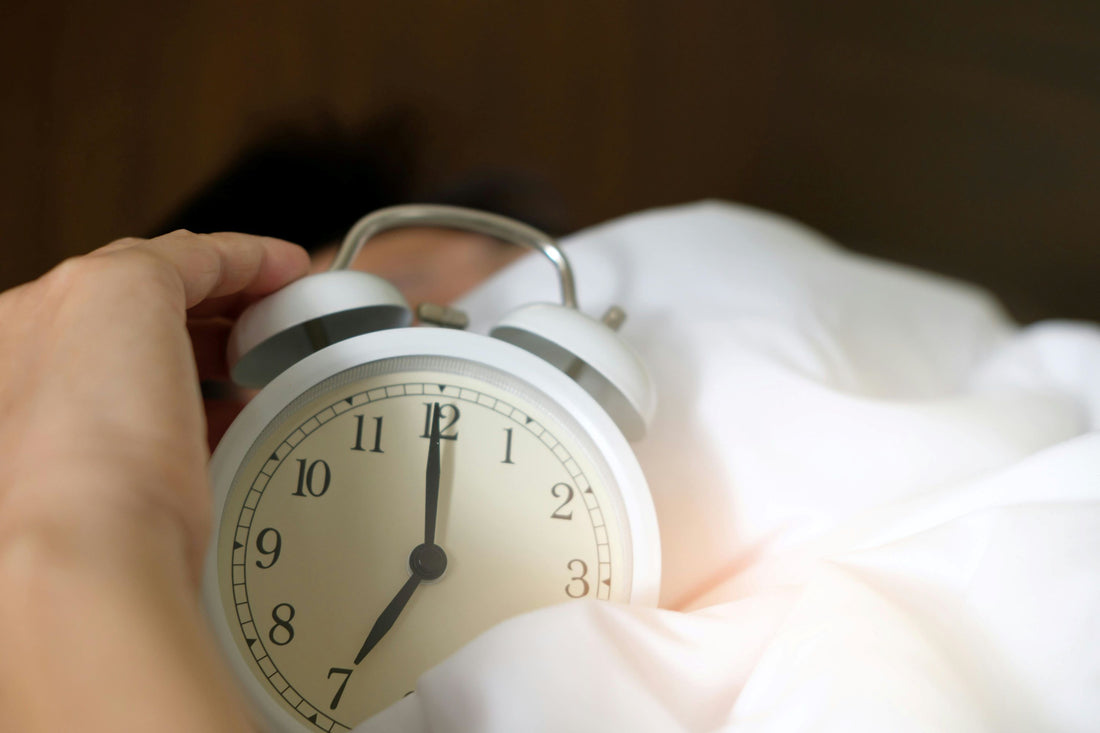Sleep hygiene is one of the pillars of good health, and its importance cannot be overstated. Yet, many of us struggle with poor sleep hygiene that leads to sleep-related issues, whether it's difficulty falling asleep, staying asleep, or simply not feeling rested upon waking.
But there are several simple but highly effective strategies you can use to instantly improve your sleep quality. Below are several evidence-backed tips and techniques to help you achieve a more restful and restorative night's sleep.
Remember that how to sleep better often involves a combination of lifestyle changes and habits. While these tips can help you instantly enhance your sleep quality, long-term results often require consistent effort.
Experiment with these strategies and tailor them to your unique needs to enjoy the benefits of restful, restorative sleep night after night.
TIP! Try a Dr. Sebi-approved drink before bed!
1. Practice Good Sleep Hygiene
A healthy sleep environment plays a crucial role in the quality of your rest. Start by ensuring your bedroom is dark, cool (between 60 and 67° Fahrenheit, per the Cleveland Clinic), and quiet. Consider blackout curtains to block out external light, earplugs to minimize noise disruptions, and a fan or white noise machine to mask any intrusive sounds.
How quiet is quiet? Well, a May 2023 study in the journal Sleep found that noise levels as low as 40 decibels (light snoring similar in volume to the ambient noise at a library) can have a negative impact on sleep quality.
2. Invest in a Comfortable Mattress and Pillow
Your mattress and pillow are fundamental to sleep comfort. If your mattress is old (no more than 5 to 10 years of use, per SleepFoundation.org) and uncomfortable, or your pillow has lost its shape (doesn’t spring back when folded), it might be time for replacements.
A study in the Journal of Chiropractic Medicine showed that participants who slept on a new mattress for 28 days experienced reduced back discomfort and improved sleep quality.
3. Regulate Your Circadian Rhythm With a Consistent Sleep Schedule
Your body loves routines, and sleep is no exception. Going to bed before midnight and waking up at the same time every day — yes, even on weekends — helps regulate your body's internal clock and circadian rhythm. This consistency can improve your sleep quality over time.
And the opposite is true: A July 2009 study in Sleep Medicine found that individuals with irregular sleep schedules had trouble sleeping and experienced increased daytime sleepiness.
4. Limit Exposure to Electronic Devices Before Bed
The blue light emitted by electronic devices like smartphones, tablets, and computers can interfere with your sleep-wake cycle by suppressing melatonin production.
Research published in March 2019 in the Journal of Applied Physiology suggests that exposure to blue light in the evening can lead to sleep disturbances and reduce overall sleep quality. Aim to turn off screens at least an hour before bedtime.
5. Avoid Alcohol and Heavy Meals Before Bed
Indulging in large, heavy meals or spicy foods close to bedtime can cause sleep problems, leading to indigestion and heartburn and increased nighttime awakenings.
And though Dr. Sebi recommended people stay away from alcohol, here’s another reason to avoid alcohol: A study in the Journal of Clinical Sleep Medicine found that alcohol consumption before bedtime can fragment sleep and reduce overall sleep duration.
6. Stay Active During the Day
Regular physical activity can improve sleep quality, but timing is also essential. Exercising too close to bedtime may have a stimulating effect. Aim for at least 30 minutes of moderate exercise most days, but finish at least a few hours before you plan to sleep.
7. Practice Relaxation Techniques
Relaxation techniques, such as deep breathing, progressive muscle relaxation, or meditation, can help calm your mind and prepare your body for healthy sleep. These practices can be particularly useful if you're feeling stressed or anxious.
8. Limit Naps
While short power naps can be refreshing, long or irregular napping during the day can disrupt sleep. If you need to nap, keep it brief (around 20 to 30 minutes) and earlier in the day, as research in the journal Sleep suggests that longer and later naps may negatively impact nighttime sleep quality.
Not Working? Consider a Natural Sleep Aid
If you've tried various strategies and still struggle with sleep, you might explore natural sleep aids such as herbal supplements or herbal teas like valerian root or chamomile. But consult with a healthcare provider before using any supplements, especially if you're taking medication.



















































1 comment
My snoring is out of wack n can’t sleep well